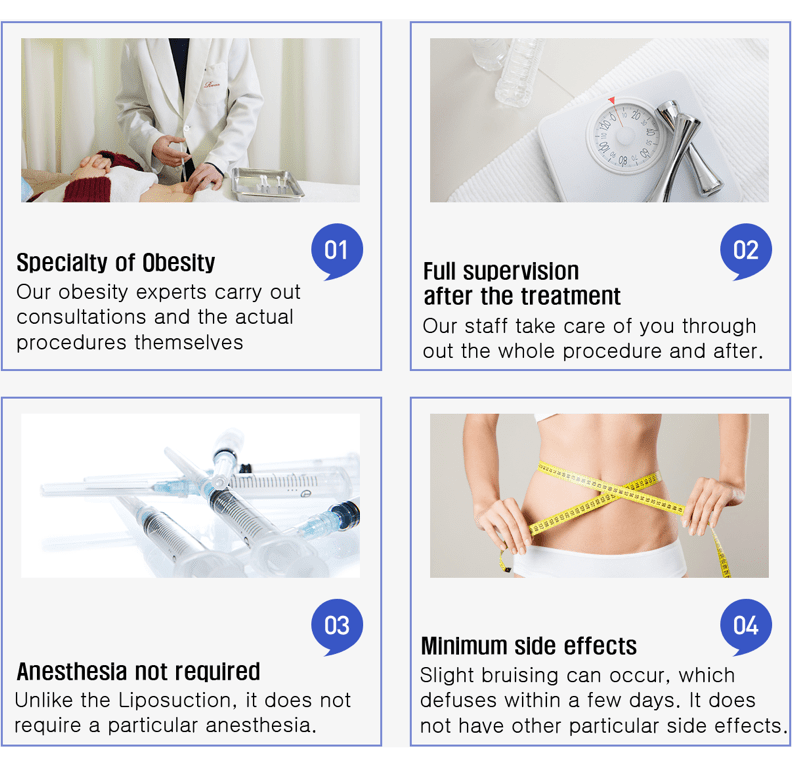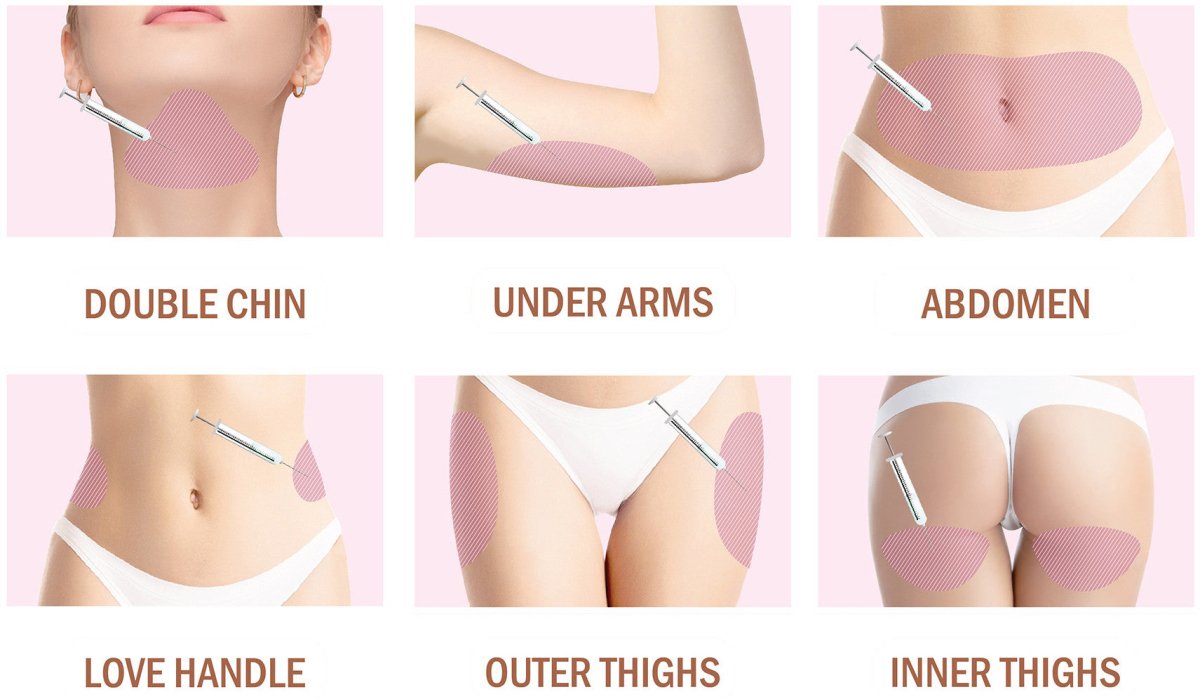Understanding the Process of Fat Reduction Injections
Are you looking to finally shed those stubborn pounds that have been lingering around? Look no further, because in this article, you will gain a comprehensive understanding of the process of fat reduction injections. With the goal of helping you achieve your desired physique, we will explore how these injections work, their potential benefits, and what to expect during the procedure. By the end, you'll be armed with the knowledge to make an informed decision on whether fat reduction injections are the right option for you. So, let's dive right in and explore this exciting solution to your weight loss journey.
What are fat reduction injections?

Definition
Fat reduction injections, also known as lipolytic injections or lipotropic injections, are cosmetic treatments that are designed to reduce localized pockets of fat in the body. These injections are a non-surgical method of fat reduction and offer an alternative to more invasive procedures such as liposuction.
How they work
Fat reduction injections typically contain a combination of compounds that work to break down and eliminate fat cells in the targeted area. These compounds may include ingredients such as phosphatidylcholine (PC), deoxycholate (DC), or aminophylline. When injected into the targeted area, these compounds work to break down the fat cells, which are then metabolized and eliminated by the body.
Common types of fat reduction injections
There are several different types of fat reduction injections available, each with their own unique combination of ingredients. Some of the most commonly used injections include:
-
Phosphatidylcholine and deoxycholate (PCDC) injections: This combination is often used for reducing fat in areas such as the thighs, hips, and abdomen.
-
Aminophylline injections: Aminophylline is commonly used to reduce the appearance of cellulite and may be used in combination with other ingredients for overall fat reduction.
-
L-carnitine injections: L-carnitine is a naturally occurring amino acid that is often used in fat reduction injections to help break down and eliminate fat cells.
Understanding the process of fat reduction injections
Consultation and assessment
Before undergoing fat reduction injections, it is important to schedule a consultation with a qualified provider. During this consultation, the provider will assess your overall health and suitability for the procedure. They will also discuss your desired goals and expectations, and determine if fat reduction injections are the best option for you.
Preparation before the procedure
Prior to the procedure, your provider may provide you with specific instructions to follow. This may include avoiding certain medications or supplements, fasting for a certain period of time, or making changes to your diet. It is important to carefully follow these instructions to ensure the best results and minimize any potential risks.
Injection process
During the injection process, your provider will identify the specific areas to be treated and mark them accordingly. The injections will then be administered using a fine-gauge needle, which may cause minimal discomfort. The number of injections required will depend on the size and number of areas being treated.
Post-procedure care
After the procedure, it is important to follow any instructions provided by your provider for post-procedure care. This may include avoiding strenuous activities or exercise for a certain period of time, wearing compression garments, or taking medication to manage any discomfort or swelling. It is important to attend any follow-up appointments as scheduled to ensure proper healing and assess the results.
Expected results and timeline
The timeline for results may vary depending on the individual and the specific treatment. In general, it may take several weeks to see noticeable results, as the body needs time to metabolize and eliminate the treated fat cells. Multiple treatments may be required to achieve the desired outcome, and results may continue to improve over a period of several months.
Benefits and risks of fat reduction injections

Benefits
-
Non-surgical option: Fat reduction injections offer a non-surgical alternative to more invasive procedures such as liposuction. This means less downtime and a quicker recovery period.
-
Targeted fat reduction: These injections allow for precise targeting of specific areas of the body, allowing for customized treatment plans to address individual concerns.
-
Minimal side effects: Fat reduction injections are generally well-tolerated, with minimal side effects such as bruising, swelling, or discomfort. These side effects are usually temporary and resolve on their own.
Risks and complications
-
Allergic reactions: Some individuals may be allergic to certain ingredients in the fat reduction injections, which can cause an allergic reaction. It is important to discuss any allergies or sensitivities with your provider prior to the procedure.
-
Bruising and swelling: While these side effects are generally temporary, some individuals may experience more prolonged bruising or swelling in the treated areas.
-
Infection and scarring: Although rare, there is a small risk of infection or scarring at the injection site. It is important to follow proper post-procedure care instructions to minimize the risk of complications.
Considerations before getting fat reduction injections
Before undergoing fat reduction injections, it is important to consider the following factors:
-
Realistic expectations: It is important to have realistic expectations about the results that can be achieved with fat reduction injections. While these injections can help reduce localized pockets of fat, they are not a substitute for overall weight loss or a healthy lifestyle.
-
Pre-existing medical conditions: Certain medical conditions may affect your eligibility for fat reduction injections. It is important to disclose any pre-existing medical conditions to your provider during the consultation.
-
Cost: Fat reduction injections can be a significant financial investment. It is important to understand the cost involved and ensure that it fits within your budget before proceeding with the treatment.
Comparison with other fat reduction methods
Surgical fat reduction
Surgical fat reduction procedures, such as liposuction, involve the removal of fat through surgical methods. While these procedures can provide more dramatic and immediate results, they also come with a higher risk of complications and a longer recovery period.
Non-surgical fat reduction
Non-surgical fat reduction methods include procedures such as cryolipolysis (fat freezing), radiofrequency treatments, or laser therapy. These methods use different mechanisms to target and break down fat cells, but they may require multiple treatments to achieve the desired results.

Pros and cons of fat reduction injections
-
Pros: Fat reduction injections offer a non-surgical alternative with minimal downtime, targeted fat reduction, and relatively few side effects. They can be a suitable option for individuals who are not eligible for or prefer to avoid surgery.
-
Cons: Fat reduction injections may require multiple sessions to achieve optimal results, and the timeline for seeing noticeable results may vary. Additionally, the cost of multiple treatments can add up over time.
Choosing a qualified provider
Credentials and experience
When choosing a provider for fat reduction injections, it is important to consider their credentials and experience. Look for a provider who is qualified and experienced in performing these injections. They should have the necessary certifications and training in cosmetic procedures.
Reviews and testimonials
Reading reviews and testimonials from previous patients can provide valuable insights into the provider's quality of work and patient satisfaction. Look for unbiased reviews from reputable sources or ask the provider for references from previous patients.
Consultation and communication
A thorough consultation with the provider is essential for determining if fat reduction injections are the right choice for you. During this consultation, the provider should take the time to listen to your concerns, answer any questions you may have, and develop a personalized treatment plan. Good communication and a positive rapport with the provider are important for a successful treatment experience.
Frequently asked questions about fat reduction injections

Who is a suitable candidate for fat reduction injections?
Suitable candidates for fat reduction injections are individuals who have localized areas of fat that have not responded to diet and exercise. They should be in good overall health and have realistic expectations about the results that can be achieved.
Are fat reduction injections painful?
Most individuals report minimal discomfort during the injection process. However, individual pain tolerance may vary. Your provider may offer options for numbing agents or other techniques to minimize discomfort.
How long do the effects of fat reduction injections last?
The effects of fat reduction injections can be long-lasting. However, maintaining a healthy lifestyle, including regular exercise and a balanced diet, can help prolong the results. The treated fat cells are permanently eliminated, but new fat cells can still develop in the future.
Are there any side effects to be concerned about?
The most common side effects of fat reduction injections are temporary bruising, swelling, and discomfort at the injection site. These side effects usually resolve on their own within a few days to weeks. Less common side effects may include allergic reactions, infection, or scarring.
How much do fat reduction injections cost?
The cost of fat reduction injections can vary depending on factors such as the provider, location, and the number of areas being treated. It is best to discuss the cost with your provider during the consultation, as they can provide you with a personalized treatment plan and cost estimate.
Preparation for fat reduction injections
Medical evaluation
Before undergoing fat reduction injections, you may need to undergo a medical evaluation to ensure that you are in good overall health and a suitable candidate for the procedure. This evaluation may include a review of your medical history, physical examination, and possibly laboratory tests.
Avoidance of certain medications
Your provider may instruct you to avoid certain medications or supplements before the procedure, as they can increase the risk of bleeding or other complications. It is important to disclose all medications and supplements you are taking during the consultation.
Fasting or dietary restrictions
In some cases, your provider may recommend fasting or certain dietary restrictions before the procedure. This may include avoiding food or liquids for a specific period of time prior to the injection. Follow these instructions carefully to ensure the best results and minimize any potential risks.
Arranging transportation if needed
Depending on the specific treatment and any anesthesia or sedation used, you may need to arrange for transportation to and from the clinic or office. Some individuals may experience temporary effects such as drowsiness or mild discomfort after the procedure, which can impair their ability to drive safely.
During the fat reduction injection procedure
Anesthesia or numbing agents
Depending on the provider and the specific treatment, anesthesia or numbing agents may be used to minimize discomfort during the injection process. Local anesthesia or topical numbing creams are commonly used to ensure patient comfort.
Injection techniques
The provider will use specific injection techniques to administer the fat reduction injections. This may include injecting the solution into multiple layers of the skin or using various angles to ensure even distribution and coverage. The provider's experience and technique are important factors in achieving optimal results.
Monitoring and supervision
Throughout the procedure, your provider will closely monitor your vital signs and overall well-being. They will ensure that you are comfortable and address any concerns or questions you may have.
Recovery and aftercare for fat reduction injections
Immediate post-procedure care
After the fat reduction injections, your provider may provide specific instructions for immediate post-procedure care. This may include applying ice packs to reduce swelling, wearing compression garments to support the treated areas, or avoiding certain activities or positions.
Pain management
Most individuals experience minimal discomfort after fat reduction injections, but your provider may prescribe pain medication or recommend over-the-counter pain relievers to manage any discomfort. It is important to follow the prescribed pain management instructions.
Activity restrictions
Depending on the treatment area and individual factors, your provider may recommend activity restrictions for a certain period of time. This may include avoiding strenuous exercise, heavy lifting, or activities that may put strain on the treated areas. It is important to follow these recommendations to ensure proper healing and minimize the risk of complications.
Follow-up appointments
Follow-up appointments are an essential part of the fat reduction injection process. These appointments allow the provider to assess your progress, address any concerns or questions, and make any necessary adjustments to your treatment plan. It is important to attend all scheduled follow-up appointments to ensure the best results.
Realistic expectations and case studies
Expected outcome
The expected outcome of fat reduction injections varies from individual to individual. While these injections can help reduce localized pockets of fat, it is important to have realistic expectations about the amount of fat that can be effectively treated. Results may also vary depending on factors such as the individual's metabolism and lifestyle habits.
Case studies and before/after photos
Case studies and before/after photos can provide valuable insights into the potential results that can be achieved with fat reduction injections. It is important to review these materials with your provider during the consultation to better understand the expected outcomes and determine if fat reduction injections are the right choice for you.
Possible challenges and factors affecting results
Several factors can influence the results of fat reduction injections. These may include individual variations in metabolism, lifestyle choices, and overall health. It is important to discuss any potential challenges or factors affecting results with your provider during the consultation to ensure a clear understanding of the expected outcomes. The provider will assess your individual situation and provide recommendations accordingly.
In conclusion, fat reduction injections are a non-surgical alternative for reducing localized pockets of fat. These injections work by breaking down and eliminating fat cells in the targeted area. The process involves a consultation and assessment, preparation before the procedure, the injection process itself, and post-procedure care. There are several benefits to fat reduction injections, such as minimal side effects and targeted fat reduction. However, there are also potential risks and considerations to keep in mind. Fat reduction injections can be compared to other fat reduction methods such as surgical and non-surgical procedures. When choosing a provider for fat reduction injections, it is important to consider their credentials, reviews, and ability to communicate effectively. In terms of preparation, medical evaluation and avoidance of certain medications may be necessary. During the procedure, anesthesia or numbing agents may be used, and injection techniques will be employed. Recovery and aftercare require immediate post-procedure care, pain management, and activity restrictions. Realistic expectations should be set, and the provider may use case studies and before/after photos to illustrate potential outcomes. It is important to be aware of possible challenges and factors that may affect results. Overall, fat reduction injections can be an effective and non-surgical method for reducing localized fat and achieving a more contoured appearance.







